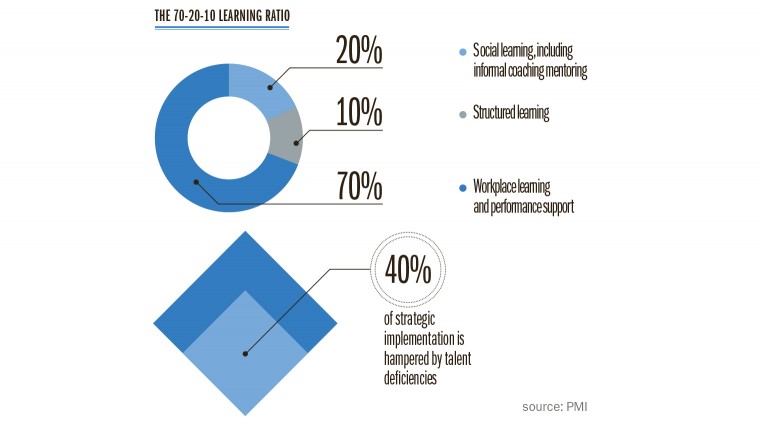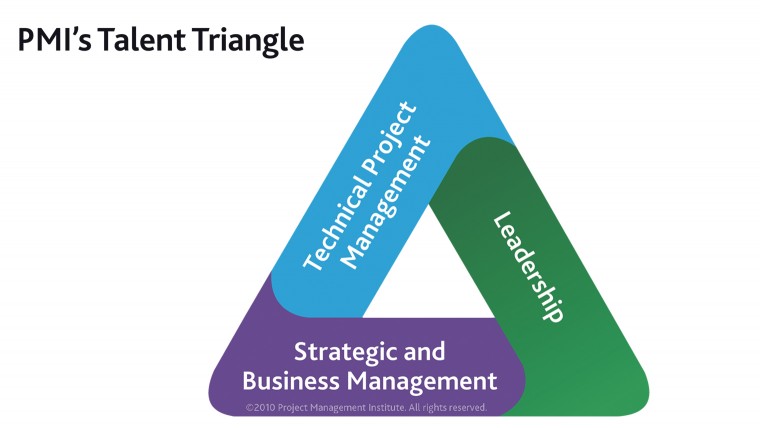Your project plan is sound. You have the tools, the technology, the time allotted. Do you have the right person in place to make all the moving parts work together smoothly?
Effective talent management for project professionals begins even before the planning stages of a project – with selective recruitment, ongoing training and advanced career development.
While approaches to talent management for project professionals vary across organisations, human resource departments often develop talent management strategies in response to rather than through alignment with the business strategy.
Through a more collaborative relationship, HR would gain greater insight and knowledge around project management, and its critical connection to organisational objectives, enabling more efficient and effective recruitment, retention and development of employees with the essential skill sets.
The well-rounded project manager encompasses the multiple skills that make up the Project Management Institute’s Talent Triangle, with the requisite technical project management skills, strategic and business management skills, and leadership skills to make projects work from the ground up.
And the more mature an organisation is in managing this strategic talent, the better its performance compared to peers in executing projects that meet business goals, drive strategic initiatives and improve financial performance.
In any business sector, strategic change is driven through projects and programmes. Organisations that have the right talent for executing strategic initiatives have a critical capability that gives them a competitive advantage. Excellence in managing talent is the key to unlocking that capability.
Talent deficiencies hamper strategy implementation efforts 40 per cent of the time, according to the recent EIU and PMI study Rally the Talent to Win: Transforming Strategy into Reality. Organisations in which talent management is aligned to organisational strategy have an average project success rate of 72 per cent, whereas organisations in which talent management is not effectively aligned to strategy have an average project success rate of 58 per cent, against an overall global average of 64 per cent.
More organisations now view talent management as an opportunity to distinguish themselves in the marketplace to achieve competitive advantage
It’s often the human side of the equation that poses the most variables and unknowns. People, personalities and individual abilities are the part of the project plan that can’t be expressed on paper or in a presentation. So as organisations evaluate their talent management strategies for professional project and programme managers, and pursue new hires and retain existing ones, they will benefit from recognising which skills and competencies set these professionals apart from other operational employees, so they are best prepared to do their job.
With the increasing complexity of projects and the ever-increasing pace of change, organisations recognise that it is no longer enough to focus their talent hiring and development on only textbook project management skills. There is a pressing need for project managers with the ability to deal with ambiguity and lead strategic initiatives that drive change.
Finding project talent is not easy for some organisations. In PMI’s Pulse of the Profession® In-Depth Report: The Competitive Advantage of Effective Talent Management, four out of five respondents reported that they have struggled over the past year to find qualified candidates to fill open positions. And the talent shortage is expected to worsen. PMI has projected an increase of 1.57 million new project management roles a year by 2020 – with no one available to fill them.

Another challenge is the lack of attention afforded talent management from the executive suite. Only 23 per cent of respondents in the Rally the Talent to Win study believe senior leadership gives project and programme talent management the priority it deserves. This lack of attention is cited as a significant barrier to achieving organisational objectives.
In addition, many organisations have a suboptimal approach at the more tactical level, with an absence of widespread collaboration and partnership between the two forces that drive talent – HR and business leaders. This is compounded by a general misunderstanding of HR’s role in securing strategic talent.
As noted in Forrester’s An Effective HR Organisation Aligns With Business And IT Strategies, in many organisations the HR department follows the lead of the executives and the business units. They see themselves as a support for business when, in fact, HR serves an operational function to ensure talent is available for strategic initiatives and other business operations.
One half of HR professionals recognised their role in aligning with, and being responsive to, the business. And awareness of the importance of the function is growing. Although a small majority, more organisations now view talent management as an opportunity to distinguish themselves in the marketplace to achieve competitive advantage.
The separation between what organisations say they should do and what they actually do stems from a misunderstanding of how strategy is implemented through strategic initiatives. Those initiatives are comprised of projects and programmes whose successful execution is at the core of an organisation’s success. This, in turn, elevates the role of project and programme managers as key talent with the critical capability to drive an organisation’s most important initiatives to success. The results are competitive advantage, growth and customer satisfaction.
A variety of factors affect the complex equation of project management talent, talent management, and executing strategy through projects and programmes. And these factors – external or internal, universal or unique – require attention and action from all stakeholders.
As organisations continue to make complex, higher-stakes initiatives their top priority and place a greater premium on those who can execute them, the need for ongoing development of project talent will become more apparent and more acute.



